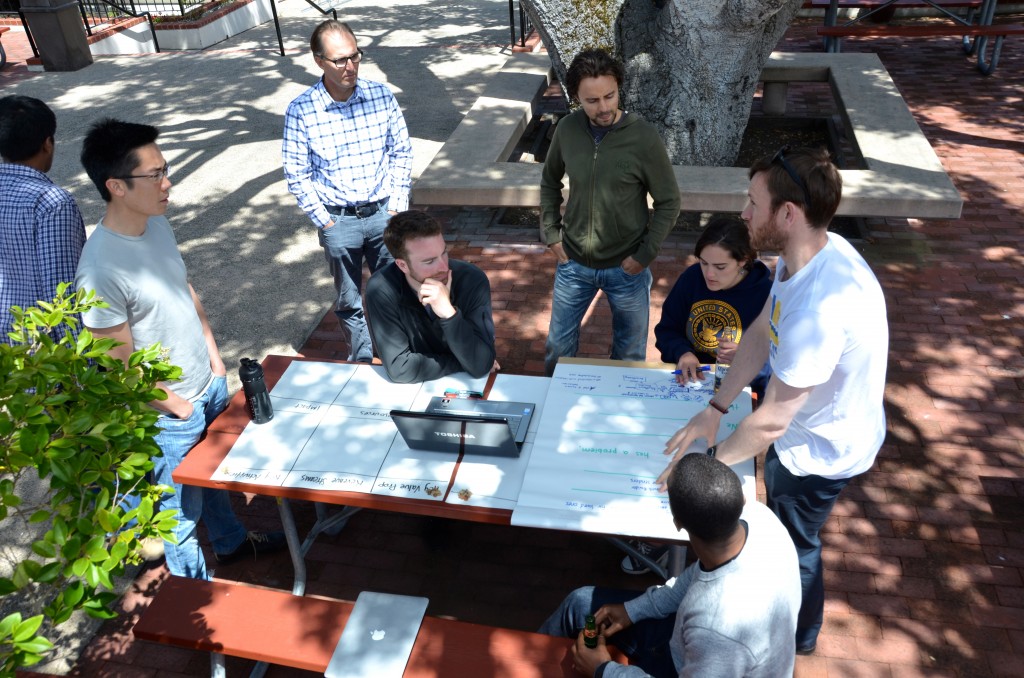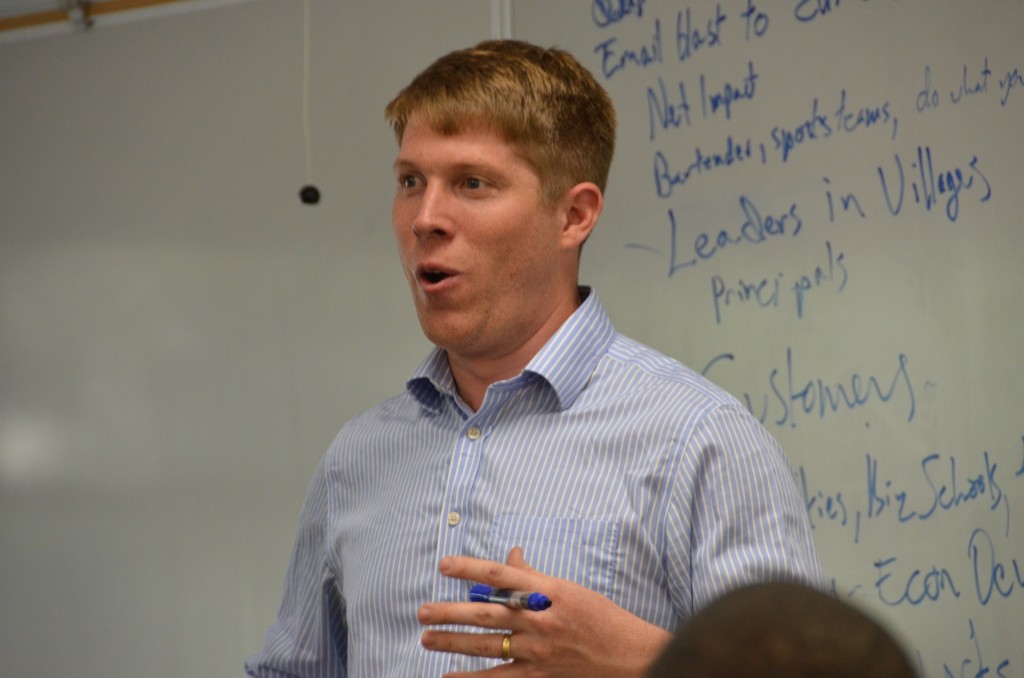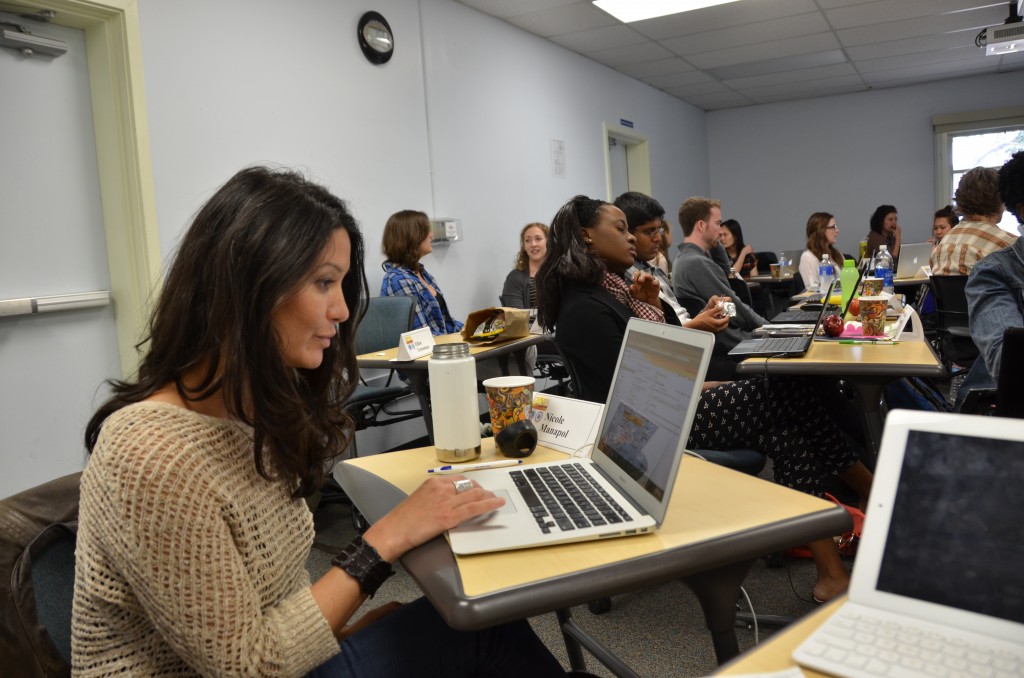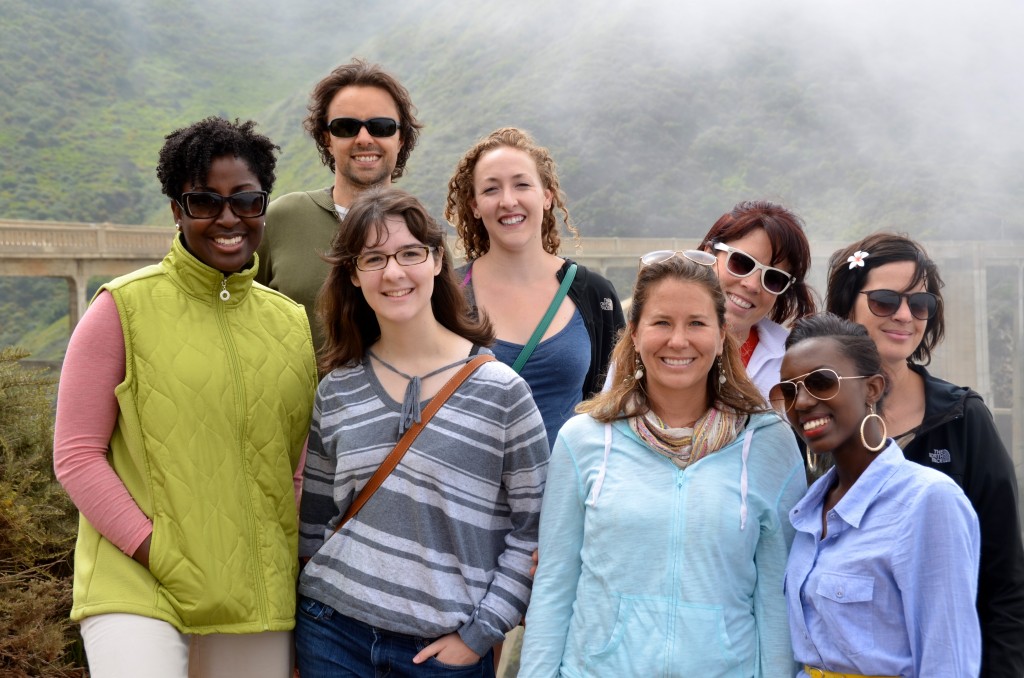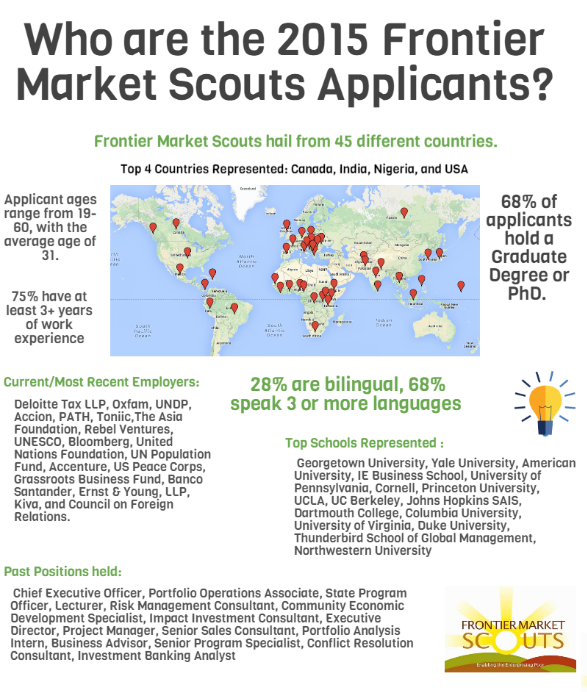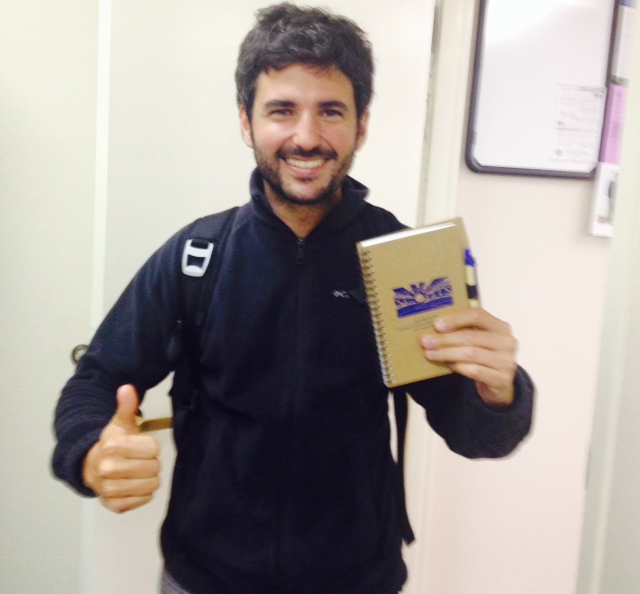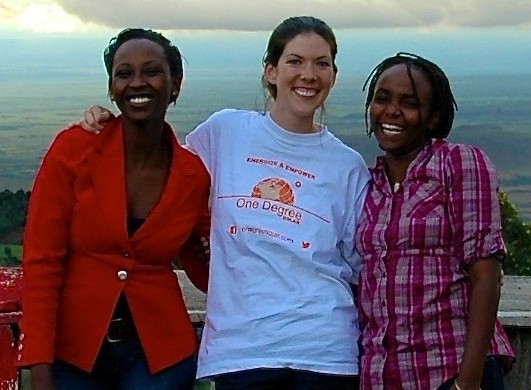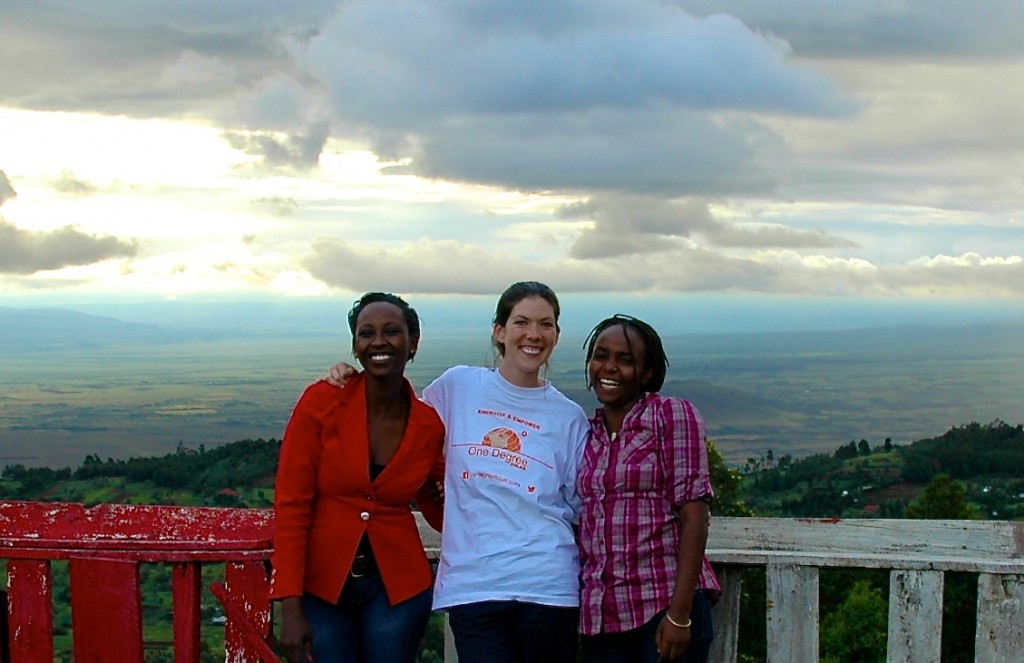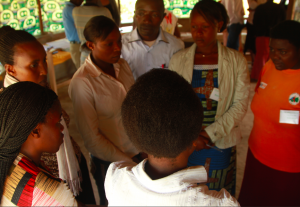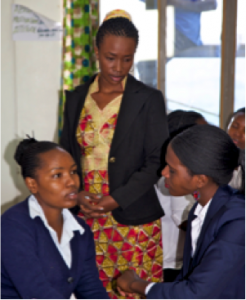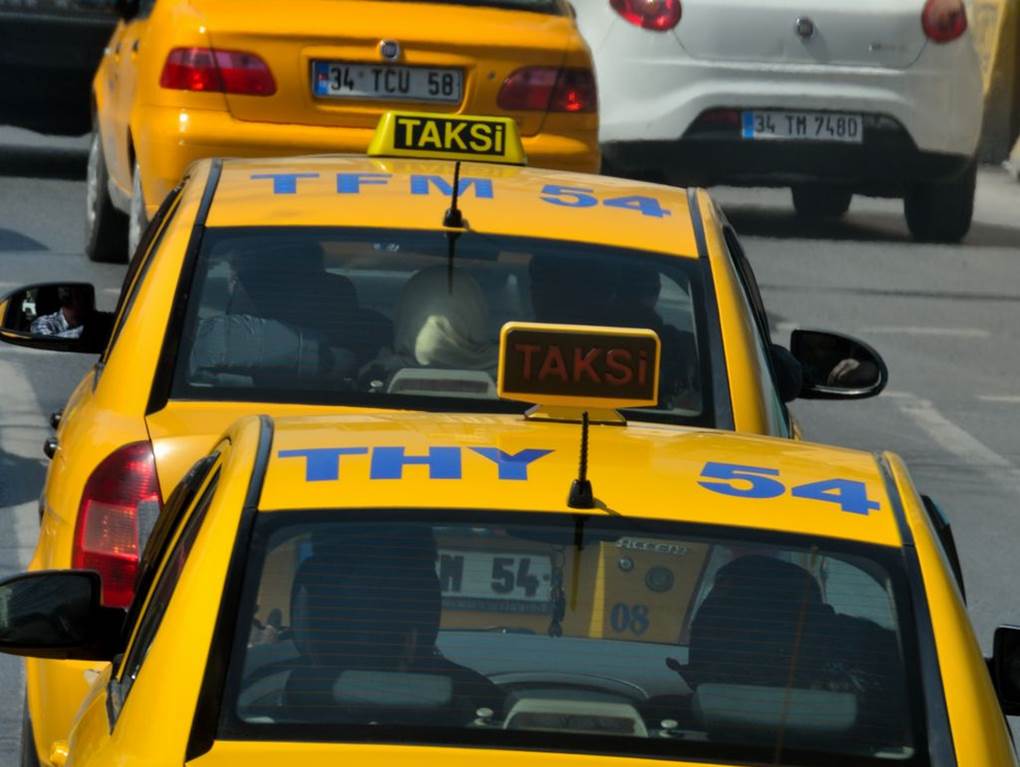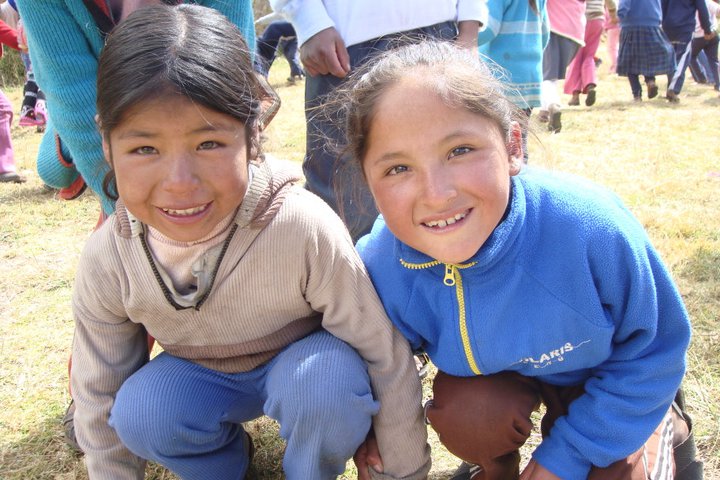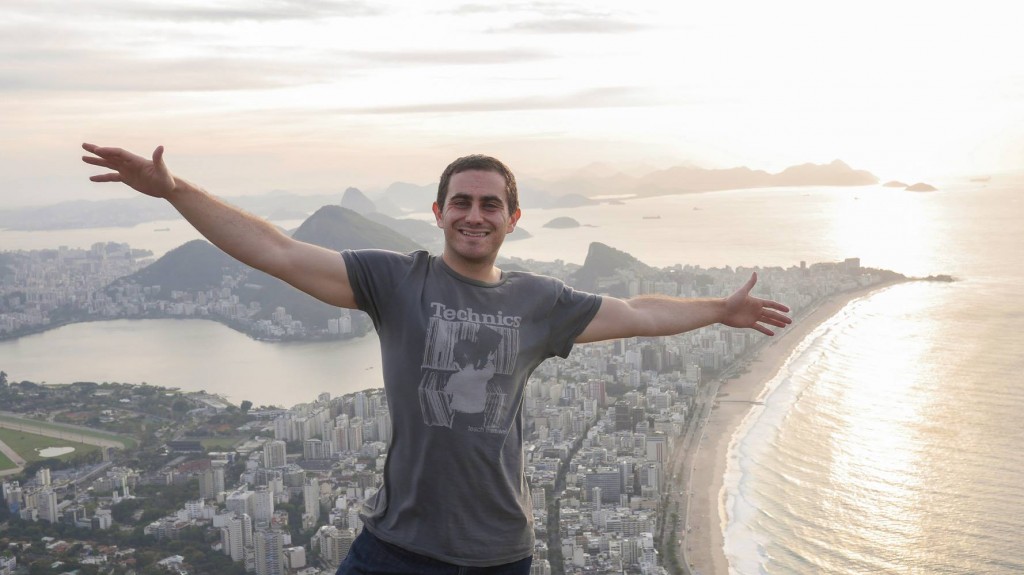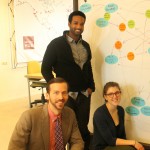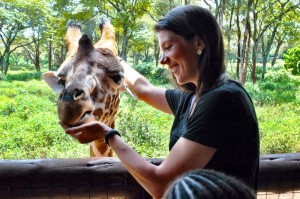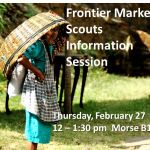This post was submitted by MPA and FMS alumna Danielle Steer.
It’s not every day that a person can sit at a pub watching the World Cup and listen to four different languages at the surrounding tables, while discussing impact investing as a poverty alleviation strategy. Unless, of course, you’re a part of the Middlebury Institute of International Studies at Monterey community. Today, this is my lunch break.
This experience seems apropos considering I’ve just finished two intense weeks in a classroom with 30 other inspiring, diverse, and experienced individuals and practitioners for the Middlebury Institute’s Frontier Market Scouts (FMS) program.
Participants from Around the World
I was unsure at first what types of professionals might be attracted to the program. My career has previously focused on gender education and development; so I was excited to learn more about how entrepreneurship could help build local economies and empower the impoverished. I was beyond pleased on the first day when I found out my colleagues in the class hailed from backgrounds not only in development and the public sector but also big banks and Wall Street. Some were gaining relevant professional experience during graduate school while others had quit jobs at Visa and Citibank to take part in the training and fellowship. We were also a geographically eclectic group as well with participants from Ireland, USA, Singapore, Australia, Philippines, Cameroon, China, the Netherlands, and Rwanda.
Intense Training with Real Experts
The two week FMS training is broken down into five-two day workshops covering different aspects of social entrepreneurship from the scouting and entrepreneurs to the impact investor perspective.
The first session was taught by Ross Baird, Executive Director at Village Capital. Ross brings a contagious energy to the course and provides a great introduction to impacting investing and social enterprise. From pitching frameworks to impact evaluation criteria for entrepreneurs, we explored various options for how scouts might identify and develop entrepreneurs in emerging markets.
Session two brought a change of pace with Simon Dejardins, currently residing across the pond at the Shell Foundation in London. Although his content was jam packed with “how to scale” high impact social enterprises, we were able to experiment with various approaches in business support and stakeholder analyses.
The half-way point of the training brought Dr. Yuwei Shi, founder and Director of Research at the Center for Social Impact Learning at MIIS. Yuwei focused on an action learning approach to business modeling by bringing in fellow experts on business development and ideation. In addition we explored a live case study, Salud2. Salud2 is a social enterprise at the concept phase started by five MIIS alumni this spring. Although Salud2 was a runner up at the recent Hult Prize competition, the FMS participants were able to go through the a business modeling exercise to help Salud2 consider alternative directions they might take their business before they enroll at the Hult Accelerator this summer.
With two sessions still to go, the FMS crew took a two day break to process the immense information we had covered over the week. We were also able to take advantage of the local beauty and activities along the way!
Feeling rested we returned to the ever charismatic, Paul Berloff of Accion Venture Labs. Paul led us through a series of lectures and activities focusing on investor perspectives. From the due diligence and the role of investors to the trends and criteria for impact we took an in-depth look at impact investing through the eyes of Accion Venture Labs.
For the final training session, we were joined by MIIS alumni, Amit Sharma and Ravi Kurani. This workshop provided an overview of the current universe of systems of environmental, social, and governance ratings (ESG ratings and analytics), including the ones commonly used in impact investing such as GIIRS. We also walked through the development of ImpactSpace , a start-up with the mission to help capture data and impact measurements for social ventures working with their counterparts.
Putting it All Together
Although I feel like I’m still processing information, theory, methodology, and tools packed into two short weeks, there were some common themes and big ideas throughout the course.
In the classroom I learned not only from the practitioners brought in to teach but also my colleagues. The class was a healthy mix of experience and knowledge that allowed us to work in meaningful and balanced groups. When I faltered on financial models, the ex-Citibank employee was there to simplify the process. When we talked about design and impact, the development students helped clarify impact metrics and the methodologies used to understand them.
After class, we dove into the nuances of culture and various informal aspects of the impact investing space during happy hour. Each of the practitioners took the time to get to know the participants and share stories about their very different experiences in the space.
As a people person, I really enjoyed the focus on relationship-building as a common theme throughout the two-week training. Whether you’re an entrepreneur looking for seed funding or an investor hoping to make an impact, personal connection and human interaction drive the entire process. I feel fortunate that I now have 30 new FMS colleagues in the field and around the world.
